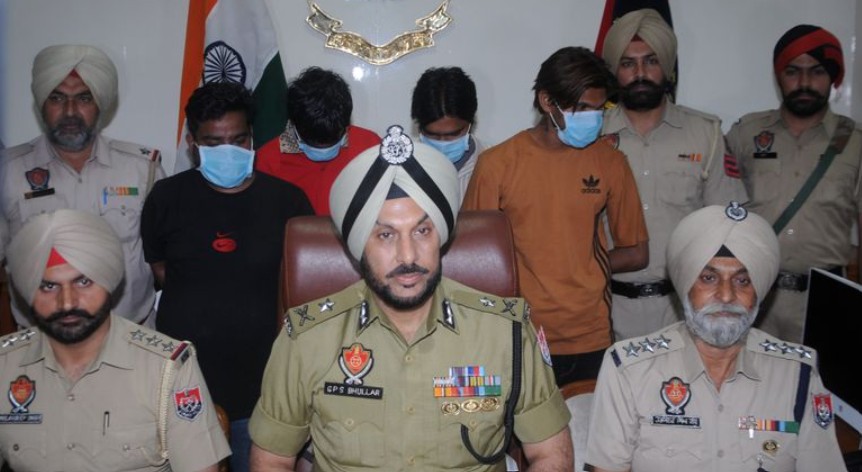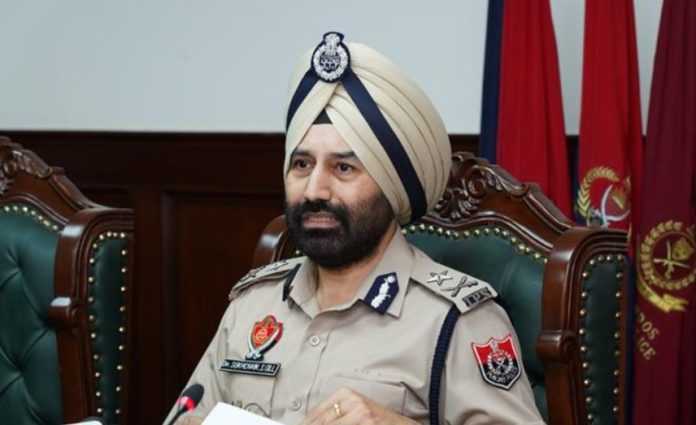In a significant breakthrough in the ongoing fight against drug trafficking, law enforcement agencies have uncovered a major drug racket involving eight individuals, including an official from the Directorate of Revenue Intelligence (DRI). The arrests, which have sent shockwaves through the administrative and enforcement circles, were made after an extensive and closely monitored operation that spanned several weeks. The case not only highlights the extent to which the narcotics network has infiltrated official institutions but also raises serious concerns about internal vigilance and systemic corruption within enforcement bodies.
The arrests were the culmination of a multi-agency investigation initiated after intelligence inputs suggested the involvement of a sophisticated narcotics network operating across multiple states. Among those detained was a DRI inspector who, according to sources close to the investigation, played a pivotal role in facilitating the movement of narcotics while leveraging his position to shield the syndicate from legal scrutiny. The other seven individuals arrested include known drug peddlers, logistics handlers, and financiers who together managed a well-oiled operation to move drugs through state borders undetected.
The joint operation, carried out by a special task force in collaboration with the Narcotics Control Bureau (NCB), local police, and intelligence units, resulted in the seizure of a large quantity of narcotics, including heroin and synthetic drugs. The total estimated market value of the confiscated drugs stands at several crores of rupees, indicating the scale and profitability of the racket.
Sources reveal that the DRI inspector had been under surveillance for some time after anomalies were discovered in the documentation of goods that passed through certain customs and border checkpoints. His unusually frequent contact with known offenders and his unexplained wealth further strengthened suspicions. A deeper probe revealed that he was not only complicit but actively organizing the transportation of narcotics by misusing his official position and granting safe passage to smuggling consignments.
What is even more alarming is the brazenness with which the racket operated. Using coded language and encrypted digital communication channels, the group coordinated shipments from international sources and managed storage and distribution networks within India. The syndicate had operatives posted at key logistical points, from ports to godowns, who ensured that the contraband could be rerouted or disguised as legal consignments when needed.

Officials involved in the operation have described the discovery as a “major breach of trust” and have pledged a thorough clean-up of internal systems to prevent such occurrences in the future. The Ministry of Finance, under which the DRI functions, has reportedly been briefed and has initiated a parallel departmental inquiry. The arrested DRI official has been suspended with immediate effect pending a full investigation, and other officials who may have overlooked or facilitated his activities are also being scrutinized.
Legal proceedings are underway, with all eight accused currently in custody. Interrogation has yielded vital information that may lead to more arrests in the days to come. Authorities believe this is just the tip of the iceberg, and the ongoing probe may uncover a wider nexus involving more officials, both at state and central levels. Efforts are also being made to trace the financial transactions that funded the drug operations, and agencies are reportedly collaborating with the Enforcement Directorate (ED) to follow the money trail.
The incident has reignited the national conversation around corruption within enforcement agencies and the need for tighter internal controls. Political leaders and civil society organizations have called for immediate reforms, including better vetting processes for officials, regular audits, and more transparency in operations. Several lawmakers have expressed concerns that the involvement of a DRI official shows how deeply rooted the drug trade has become, and have urged for the establishment of a separate independent body to monitor anti-narcotics efforts.
Commenting on the arrests, a senior official from the Narcotics Control Bureau stated, “This is a textbook example of how systemic corruption can compromise national security. When individuals entrusted with enforcement of law become enablers of crime, it weakens the entire justice system. Our goal is to not just dismantle this particular network, but to create deterrents so that no one in power is tempted to walk down this path again.”
The bust has also highlighted the need for international cooperation. Several of the drug consignments were believed to have originated from foreign sources, including regions in the Middle East and Southeast Asia. Coordination with international customs and border agencies is being enhanced to prevent future smuggling attempts, and diplomatic channels have been engaged to share intelligence and ensure coordinated crackdowns.
Meanwhile, in the wake of these developments, public reaction has been strong. Social media platforms have been flooded with calls for swift justice and systemic reform. Citizen groups have planned protests demanding accountability from those at the helm of enforcement bodies. Parents, particularly in states like Punjab where drug addiction is a growing concern, have voiced their anguish and appealed for a zero-tolerance approach toward those who facilitate the drug menace.
The case is likely to be a defining moment in India’s battle against narcotics. It underscores not just the scale of the challenge, but also the urgent need for renewed political and administrative will to uproot the menace. With the involvement of a senior enforcement official, this episode serves as a grim reminder that the rot of drug trafficking can penetrate even the most secure corridors of authority.
Going forward, experts believe that while stringent laws exist, the focus must now shift to implementation and accountability. Internal affairs units within enforcement agencies must be strengthened, and whistleblower protections should be enhanced to encourage reporting of misconduct. There is also a growing consensus on the need for real-time intelligence-sharing across agencies, both at the national and international level, to stay ahead of evolving drug trafficking tactics.
As the investigation continues and more layers of the racket are peeled back, the spotlight will remain firmly on how the authorities respond—not just in terms of punishing the guilty, but also in ensuring that the trust of the public in law enforcement is restored. The next few weeks are expected to bring more revelations, and possibly more arrests, as India confronts yet another reminder of the challenges posed by organized crime and internal corruption.


